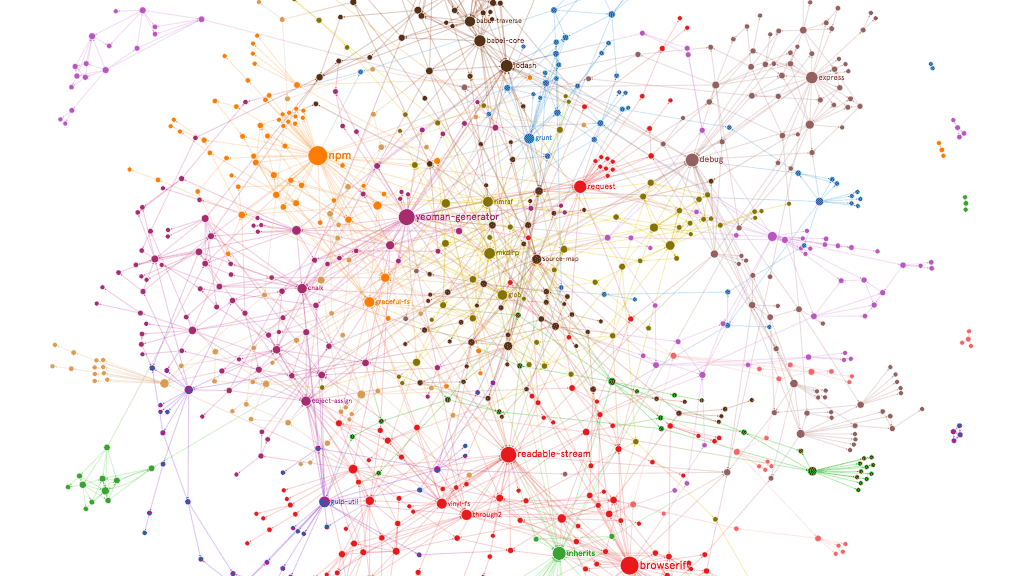Just discovered some nice work by Burak Arikan creating network maps and analyzing the depths of package dependency trees in the the Node Package Manager (NPM) registry of Javascript packages.
Category Archives: commons-based orgs
Bibliography on humanitarian and human rights uses of networks
This bibliography was collected while doing research for a report to the AAAS Science and Human Rights Program on Potential Human Rights Uses of Network Analysis and Network Mapping (pdf). The articles were located through my own (mostly web based) research and from the kind recommendations of the SOCNET listserv. Several of the cites are general network analysis lit, and not everything appeared in the paper. I’m sure there are many relevant articles I’ve overlooked, and I’m sorry if I left out anything someone sent me. The list is an export from my bibtext file, if anything got mangled in export, please let me know and I will send you the bibliography file.
Continue reading Bibliography on humanitarian and human rights uses of networks
Unfluence Project Launched!
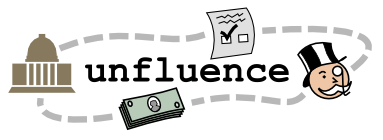
Greg Michalec and I just launched a website that allows users to interactively explore political contribution data as a network map. We won first prize in the Sunlight Foundation Mashup competition! Try your own query at http://unfluence.net/
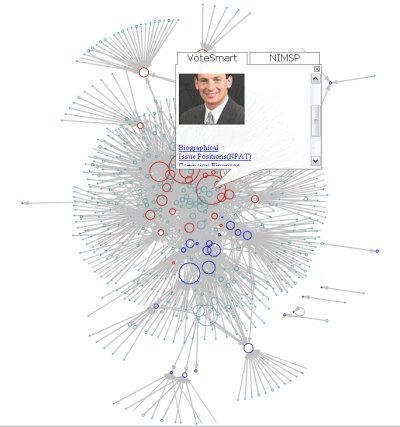
This was done as an entry in the Sunlight Foundations Mashup Contest. Cross your fingers that we win and get some resources to continue the project! ;-)
Continue reading Unfluence Project Launched!
A Call for Collaboration (0.1)
I’m looking for people to team up with to build a non-profit commons based R&D organization. Here’s the current state of my evolving pitch:
Commons Business Model (long term)
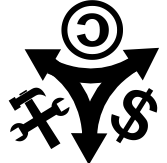 I see this as a project running on a couple of different time scales with various goals. The broader and longer term of which is to test and demonstrate the feasibility of an R&D business model based around intellectual commons. So organizations, academic institutions, and companies would pay for expertise and specific tool delivery, but intellectual property is drawn from and returned to the public domain. Clients would be buying the innovation, the implementation (that final 20% it takes to hook up all those great free libraries into something useful) and saving big bucks by not re-writing everything from scratch. This kind of model is especially appropriate for academics and NGOs which are (nominally at lest) working for a common good rather than directly competing for monopoly.
I see this as a project running on a couple of different time scales with various goals. The broader and longer term of which is to test and demonstrate the feasibility of an R&D business model based around intellectual commons. So organizations, academic institutions, and companies would pay for expertise and specific tool delivery, but intellectual property is drawn from and returned to the public domain. Clients would be buying the innovation, the implementation (that final 20% it takes to hook up all those great free libraries into something useful) and saving big bucks by not re-writing everything from scratch. This kind of model is especially appropriate for academics and NGOs which are (nominally at lest) working for a common good rather than directly competing for monopoly.
Continue reading A Call for Collaboration (0.1)
Commerce info tracking, etc
Nice idea, building collaborative software for tagging and tracking commercial products. “Network of Integrated Consumer Knowledge” Eugene based software co. http://www.grasscommons.org/
Grass Commons, a 501(c)3 public interest charity, is building pipelines between those who can generate information about products and companies and those who can use that information to build a more sustainable economy and a better world.
Grasscommons seems to have a collaborative relationship with Hooze,
Hooze.org is about collaborating to gather useful, reliable info about the products and companies that are shaping our world.
Hooze is the world’s first public wagging site. Wagging combines wiki and tagging in unique ways so that communities of users can organically develop ways of organizing and presenting information. The combo cards at the bottom of this page are an example of how wagging differs from other tools.
Krugal Code Search Engine
Krugal seems to be a nice project for searching code snips and algorithm implementations. Currently mostly sourceforge stuff, I found some very familiar code ;-) also alternate implementations I’d like to look at in detail
Krugle is designed to locate code. Krugle supports code search by crawling, parsing and indexing code found in all open source repositories, as well as code that exists in archives, mailing lists, blogs, and web pages. (http://corp.krugle.com/product/index.html)
Definitly still in beta, but seems to work pretty well.
SoNIA (Social Network Image Animator)
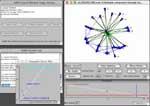 SoNIA is a Java-based package for visualizing dynamic or longitudinal “network” data. By dynamic, we mean that in addition to information about the relations (ties) between various entities (actors, nodes) there is also information about when these relations occur, or at least the relative order in which they occur.
SoNIA is a Java-based package for visualizing dynamic or longitudinal “network” data. By dynamic, we mean that in addition to information about the relations (ties) between various entities (actors, nodes) there is also information about when these relations occur, or at least the relative order in which they occur.
Some examples..
The source code is on the sourceforge site.

